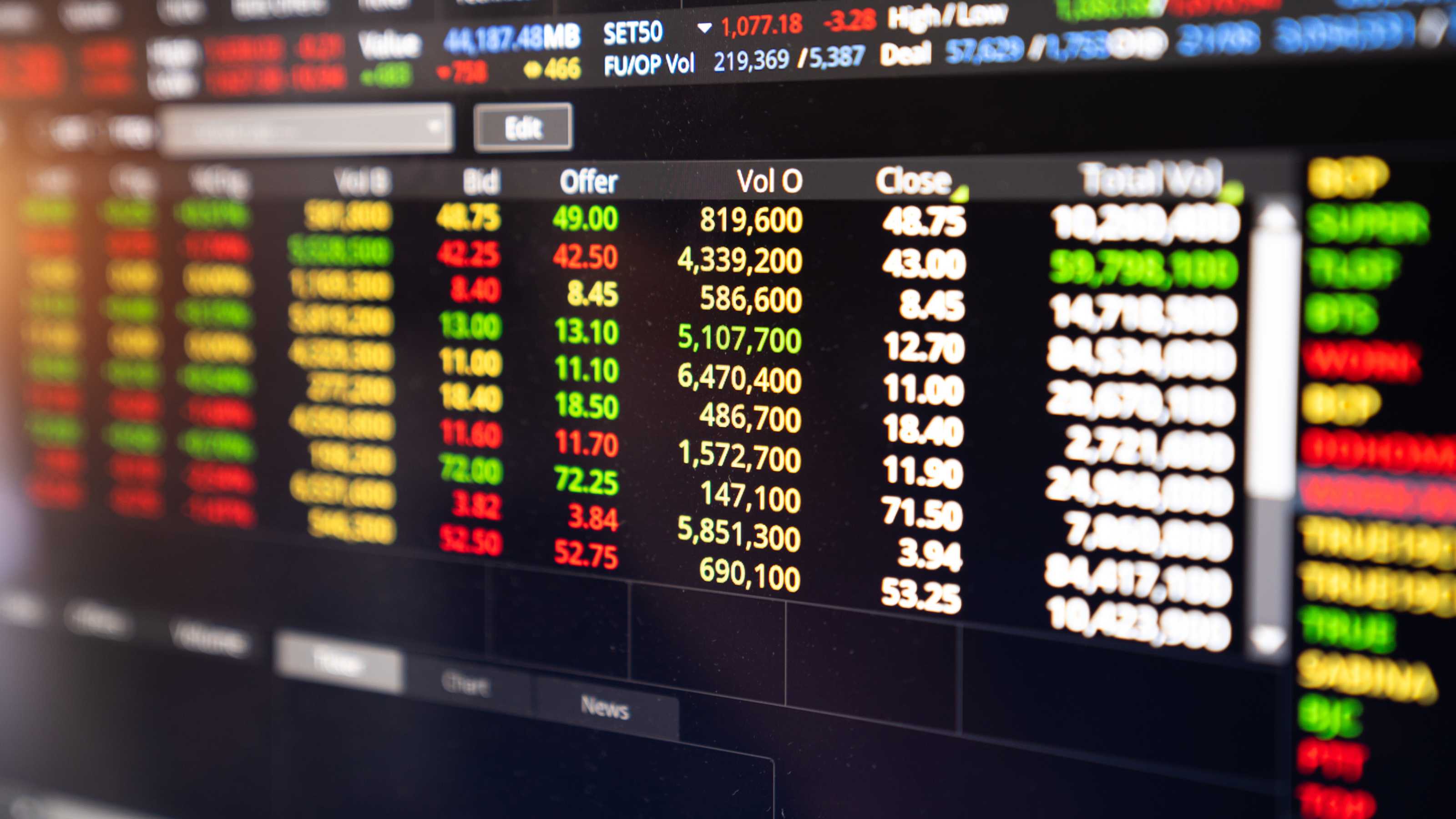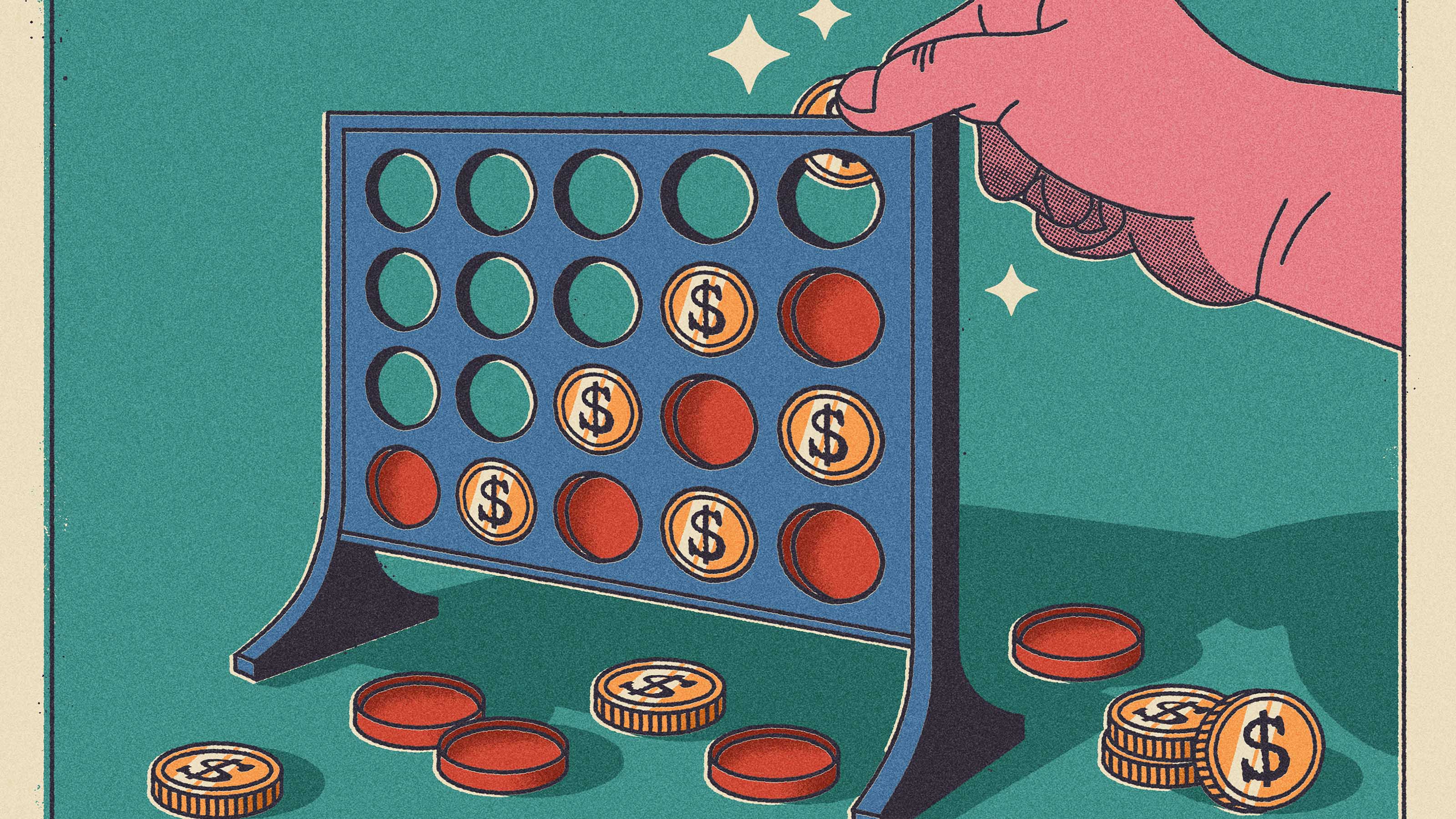Sell Stocks Slowly
The more you trade, the less you earn because you pay commissions and taxes on your gains.

Profit and prosper with the best of Kiplinger's advice on investing, taxes, retirement, personal finance and much more. Delivered daily. Enter your email in the box and click Sign Me Up.
You are now subscribed
Your newsletter sign-up was successful
Want to add more newsletters?

Delivered daily
Kiplinger Today
Profit and prosper with the best of Kiplinger's advice on investing, taxes, retirement, personal finance and much more delivered daily. Smart money moves start here.

Sent five days a week
Kiplinger A Step Ahead
Get practical help to make better financial decisions in your everyday life, from spending to savings on top deals.

Delivered daily
Kiplinger Closing Bell
Get today's biggest financial and investing headlines delivered to your inbox every day the U.S. stock market is open.

Sent twice a week
Kiplinger Adviser Intel
Financial pros across the country share best practices and fresh tactics to preserve and grow your wealth.

Delivered weekly
Kiplinger Tax Tips
Trim your federal and state tax bills with practical tax-planning and tax-cutting strategies.

Sent twice a week
Kiplinger Retirement Tips
Your twice-a-week guide to planning and enjoying a financially secure and richly rewarding retirement

Sent bimonthly.
Kiplinger Adviser Angle
Insights for advisers, wealth managers and other financial professionals.

Sent twice a week
Kiplinger Investing Weekly
Your twice-a-week roundup of promising stocks, funds, companies and industries you should consider, ones you should avoid, and why.

Sent weekly for six weeks
Kiplinger Invest for Retirement
Your step-by-step six-part series on how to invest for retirement, from devising a successful strategy to exactly which investments to choose.
Let me start by saying that I’m sorry about Schnitzer Steel (symbol SCHN). Here I am supposed to be providing an example of wise stock selection and instead I get tripped up by a bad case of unwarranted optimism. I bought shares of the Oregon-based metals company earlier this year after concluding that a sturdy economic recovery was under way. That convinced me that Americans would trade in their junkers for new cars in droves, creating a wealth of recyclable material for Schnitzer to process and resell into fast-growing emerging markets. Wrong on all counts. The stock, at $31, is down 31%.
I’m also regretful about Corning (GLW), one of the first purchases for my experimental (though real) “Practical Investing” portfolio. I bought shares of Corning after becoming enamored with its Gorilla Glass product—the tough, light surface that may well encase your smart phone. I watched A Day Made of Glass, a video produced by Corning, with stars in my eyes, thinking that the company was so cutting-edge that investors would reward its stock with a higher price-earnings ratio and, by extension, a higher share price. Corning’s P/E has indeed expanded, but only because the company’s earnings have fallen even more sharply than the stock price.
Trade Less, Earn More
As long as I’m engaging in mea culpas, I should mention that among the 19 stocks I’ve bought, three others are in the red (results are through September 7). But my confessions are more than an exercise in humility. Now that my portfolio is nearing its one-year anniversary, I will allow myself to consider selling some of the losers, as well as winners that I believe are unlikely to repeat their success. I’m mainly looking at what I did wrong in hopes that I don’t repeat my mistakes. (We’ll do a full accounting next month at the portfolio’s one-year anniversary. In the meantime, you can see the entire package.)
From just $107.88 $24.99 for Kiplinger Personal Finance
Become a smarter, better informed investor. Subscribe from just $107.88 $24.99, plus get up to 4 Special Issues

Sign up for Kiplinger’s Free Newsletters
Profit and prosper with the best of expert advice on investing, taxes, retirement, personal finance and more - straight to your e-mail.
Profit and prosper with the best of expert advice - straight to your e-mail.
Why have I waited this long to sell? It comes down to research I learned about a decade ago when I had the good fortune to hear Terrance Odean, now a finance professor at the University of California at Berkeley, present a paper titled Boys Will Be Boys: Gender, Overconfidence and Common Stock Investment.
I was struck by the paper’s uncommon good sense. The main point was that the more you trade, the less you earn. That’s because you must pay commissions and taxes on your gains, and then you have to find a new investment that performs better than the one you sold. That’s hard to do. In fact, Odean and his research partner, Brad Barber, found that men, who typically trade more than women, earned an average of 2.65 percentage points less each year than they would by simply leaving their investments alone.
Consider the impact of such a penalty. Suppose you invest $200,000 (as I have in our “Practical Investing” portfolio) and earn 8% a year over 15 years. At the end of that period, you’ll have $691,611. If you earned only 5.35% a year (reflecting the cost of the trading penalty), you’d have only $454,372 after 15 years. The difference is an astounding $237,239—more than the amount you originally invested. Trading costs have come down since the study was conducted. Even so, the numbers provide a powerful incentive to exhibit restraint when trading stocks.
After hearing Odean, I vowed I would never sell a stock within a year after I purchased it. Once the year was up, I would reevaluate all of my stocks, asking the same basic question for each: Given current share prices and prospects for the underlying companies, would I buy today? This philosophy means that I will soon take a serious look at the first three stocks I bought for my portfolio. They are Corning, which, at $13, has lost 8%; Intel (INTC, $24), up 9%; and Spirit Airlines (SAVE, $20), up 41%.
Kathy Kristof is a contributing editor to Kiplinger’s Personal Finance and author of the book Investing 101. Follow her on Twitter. Or email her at practicalinvesting@kiplinger.com.
Profit and prosper with the best of Kiplinger's advice on investing, taxes, retirement, personal finance and much more. Delivered daily. Enter your email in the box and click Sign Me Up.

-
 Dow Adds 1,206 Points to Top 50,000: Stock Market Today
Dow Adds 1,206 Points to Top 50,000: Stock Market TodayThe S&P 500 and Nasdaq also had strong finishes to a volatile week, with beaten-down tech stocks outperforming.
-
 Ask the Tax Editor: Federal Income Tax Deductions
Ask the Tax Editor: Federal Income Tax DeductionsAsk the Editor In this week's Ask the Editor Q&A, Joy Taylor answers questions on federal income tax deductions
-
 States With No-Fault Car Insurance Laws (and How No-Fault Car Insurance Works)
States With No-Fault Car Insurance Laws (and How No-Fault Car Insurance Works)A breakdown of the confusing rules around no-fault car insurance in every state where it exists.
-
 The Most Tax-Friendly States for Investing in 2025 (Hint: There Are Two)
The Most Tax-Friendly States for Investing in 2025 (Hint: There Are Two)State Taxes Living in one of these places could lower your 2025 investment taxes — especially if you invest in real estate.
-
 The Final Countdown for Retirees with Investment Income
The Final Countdown for Retirees with Investment IncomeRetirement Tax Don’t assume Social Security withholding is enough. Some retirement income may require a quarterly estimated tax payment by the September 15 deadline.
-
 Stock Market Today: Markets Set Fresh Highs as CPI, Earnings Loom
Stock Market Today: Markets Set Fresh Highs as CPI, Earnings LoomStocks wavered on light volume ahead of a busy week for economic news and corporate earnings.
-
 Is High-Yield Savings Account Interest Taxable?
Is High-Yield Savings Account Interest Taxable?Savings Accounts Think a high-yield savings account is a good idea? Don’t forget taxes on savings account interest.
-
 How to Beef Up Your Portfolio Against Inflation
How to Beef Up Your Portfolio Against Inflationinvesting These sectors are better positioned to benefit from rising prices.
-
 Taxable or Tax-Deferred Account: How to Pick
Taxable or Tax-Deferred Account: How to PickInvesting for Income Use our guide to decide which assets belong in a taxable account and which go into a tax-advantaged account.
-
 Smart Investing in a Bear Market
Smart Investing in a Bear Marketinvesting Here's how to make the most of today’s dicey market.
-
 How to Open a Stock Market Account
How to Open a Stock Market Accountinvesting Investing can be fun, but you need a brokerage account to do it. Fortunately, it’s easy to get started.